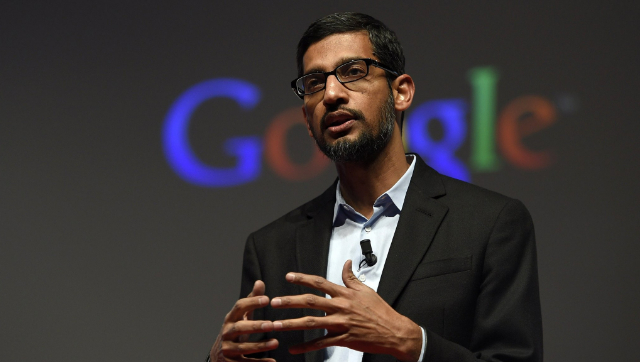Sundar Pichai, CEO of Google and Alphabet, stated on Sunday that artificial intelligence (AI) would eventually affect “every product of every company,” warning of the threats that the technology poses for job sectors and the spread of disinformation. Pichai also called AI a critical technology that would “impact national security” in the future. “We need to adapt as a society for it,” Pichai told CBS. He also stated that employee development and sustainability will be jeopardised for businesses that rely on “knowledge workers,” such as authors, accountants, and even software engineers. Google’s bet on Bard chatbot Google’s AI ‘chatbot’, Bard, was released last month. This came after the online premiere of OpenAI’s ChatGPT in 2022, which gained a lot of attention for its capacity to generate academic papers and write dense and detailed stretches of writing using human-like language, among other things. However, AI chatbots, notably ChatGPT, have detractors. It was outlawed in Italy earlier this month because to possible privacy issues, and tech titans Elon Musk and Steve Wozniak, as well as hundreds of academics, urged for a halt to AI trials. The technology should be “rigorously audited and overseen by independent outside experts,” according to a joint open letter signed by Musk and Wozniak. AI can be very dangerous Pichai, too, warned of the dangers of artificial intelligence. He predicted that the proliferation of bogus news, videos, and photos would be “much larger” and “could cause harm.” Google has previously issued an online paper pushing for technology control to guarantee that it “align[s] with human values, including morality." “It’s not for a company to decide,” he told CBS. This is why I believe the creation of this should include not just engineers, but also social scientists, ethicists, philosophers, and others.” According to Pichai, artificial intelligence is still a “black box” that humans “don’t fully understand." Pichai still optimistic about AI Pichai is optimistic about the future, noting that AI can support people and aid in smart work – a concept that entails finding efficient methods to finish tasks on time and without sacrificing quality. “For example, you could be a radiologist, and in five to ten years, you’ll have an AI collaborator with you,” Pichai explains. When you get in the morning and have a hundred items to go through, it may say, ‘These are the most critical situations you need to look at first.’" The need to regulate AI When questioned about laws on AI and the need to regulate it, the Google CEO stated that there may come a day when countries may need to join AI treaties comparable to the Non-proliferation Treaty on Nuclear Weapons (NPT) to prevent technology misuse. He also addressed Google’s loss in the race to Microsoft and OpenAI with their generative AI technologies, Bing Chat and ChatGPT, respectively. “One of the things we need to be careful about with AI is avoiding what I call ‘race conditions,’ where people working on it across companies get so caught up in who is first, that we lose sight of the potential pitfalls and downsides to it,” Pichai adds. However, the Google CEO also applauded the OpenAI team for developing ChatGPT and preparing the world for the technology. Even OpenAI CEO Sam Altman has pushed for government oversight and standards to manage AI. Read all the Latest News , Trending News , Cricket News , Bollywood News , India News and Entertainment News here. Follow us on Facebook , Twitter and Instagram .
AI is dangerous, can threaten national security, society needs to adapt, says Google CEO Sundar Pichai
Mehul Reuben Das
• April 18, 2023, 10:14:41 IST
Google CEO Sundar Pichai has warned that AI is very dangerous, and that no product or business will be safe from the advent of AI. Pichai also warned how AI can be an issue for national security and that countries may need to sign AI treaties in a few years.
Advertisement
)
End of Article